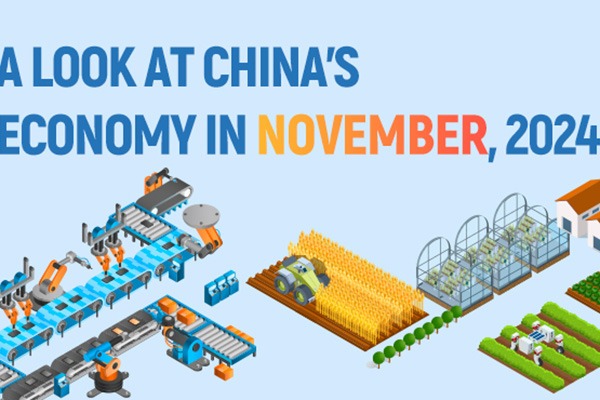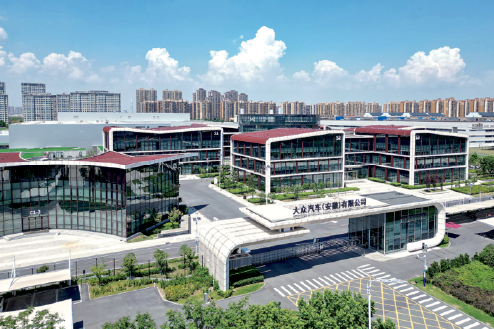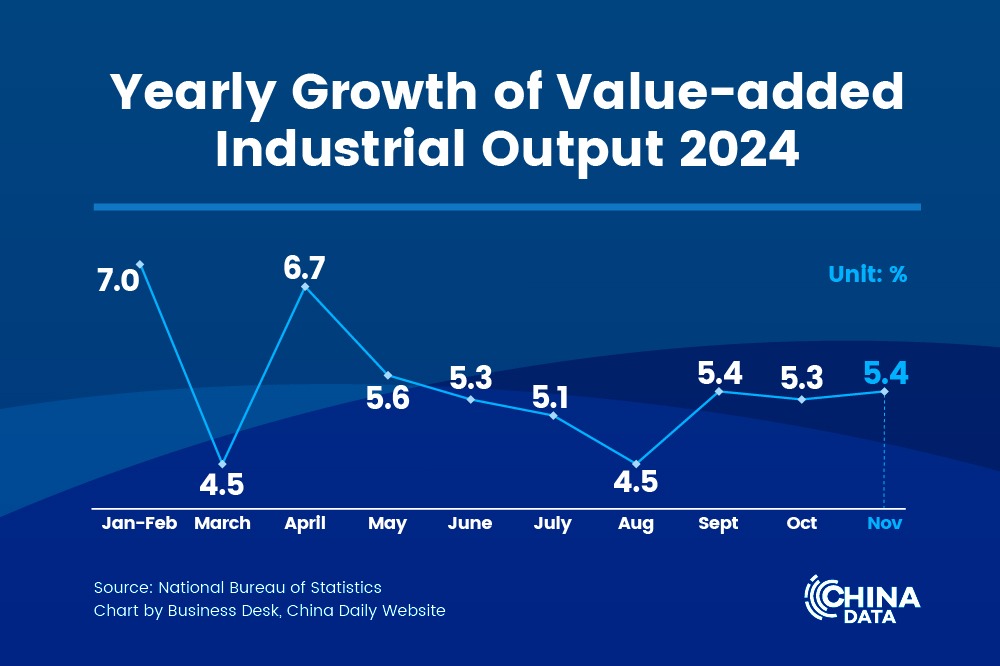Data for November points to steady economic rebound


China's economy showed sustained recovery in November amid a raft of government measures aimed at stimulating growth, pointing to green shoots of a steady rebound heading into 2025, economists said on Monday.
They said they expect the growth momentum to strengthen further after the latest key economic meeting signaled a more proactive stance in 2025, with expansionary moves in macroeconomic adjustments to both fiscal and monetary policies likely to provide strong support.
The economists also said the key focus will be on tackling both short-term challenges from lackluster demand and longer-term structural issues, aiming to further boost domestic consumption and investment while fostering a more resilient economic framework.
Data released by the National Bureau of Statistics showed that China's value-added industrial output grew 5.4 percent year-on-year in November, up from a 5.3 percent rise the previous month.
"China's industrial output saw a modest acceleration in November, driven by a pickup in manufacturing production," said Wang Qing, chief macroeconomic analyst at Golden Credit Rating International. "This improvement reflects the impact of a series of incremental policy measures that have bolstered market confidence and supported demand recovery. And the strong export performance also provides a significant boost to industrial activity.
"With the government's ongoing push to expand consumption and investment, we expect industrial production growth to remain robust in December, likely in the range of 5 percent to 6 percent," he added.
NBS data showed that the growth of retail sales slowed to 3 percent year-on-year in November from 4.8 percent in October, while fixed-asset investment saw 3.3 percent year-on-year growth during the January-November period, down from 3.4 percent in the first 10 months.
Lu Ting, chief China economist at Nomura, said the latest data indicates that domestic demand was weaker than expected. He added that he believes the central government will ramp up the fiscal deficit and fiscal spending in 2025.
Citing the recently concluded Central Economic Work Conference, Lu highlighted that expanding domestic demand is in the top spot among the listed major tasks for the coming year, and the country will deliver a major boost to consumption and increase returns on investment.
"We forecast a total of 3.6 trillion yuan ($494.3 billion) in incremental borrowing for 2025 as against 2024, or around 2.6 percent of GDP," he said. "We expect the official deficit ratio to be raised from 3 percent this year to 4 percent next year, and net financing from central government special bonds to be raised to 1.5 trillion yuan from 1 trillion yuan in 2024."
Betty Wang, lead economist with British think tank Oxford Economics, said: "There is a need for more proactive fiscal policy. We expect more fiscal stimulus, approximately 2 percent of GDP, to be announced in March of 2025."
On the monetary policy front, she said her team expects a total of 40 basis points in rate cuts in 2025, but with the official position shifting to a "moderately loose" strategy for monetary policy.
"There is a chance that they could cut by more," she added.
Han Wenxiu, executive deputy director of the Office of the Central Committee for Financial and Economic Affairs, said that China will enact more proactive fiscal policy and moderately loose monetary policy, with detailed measures to be delivered next year at the two sessions, the annual meetings of China's top legislative and political advisory bodies.
During an annual economic conference held by the China Center for International Economic Exchanges on Saturday, Han said the move marked a shift from the "prudent" monetary stance for the first time since China dealt with the 2007-09 global financial crisis.
Wei Jianguo, former vice-minister of commerce, said the focus should be on expanding domestic demand and spurring consumption.
Furthermore, it is advisable for the government to increase incomes and reduce burdens for low- and middle-income groups and guide them toward high-quality and healthy consumption choices, Wei said, with more efforts made to cultivate new forms of consumption, especially in the fields of elderly care, healthcare and culture and tourism.




































